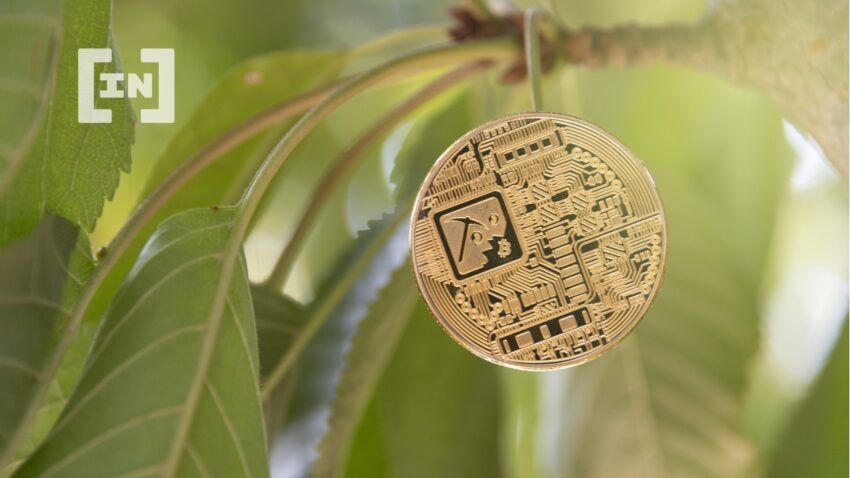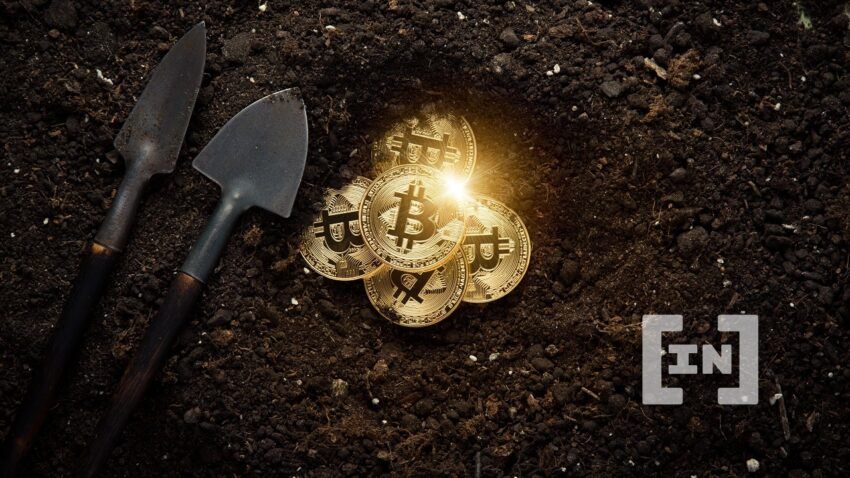Why environmentalists need to relax, it’s better than you think

Bitcoin is not the great evil we have been led to believe. Until you have looked deep into something, you are not able to judge it, says Daniel Batten.
John Lennon once said, “Life is what happens when you’re busy making other plans.” I remembered this line today as I remembered the plans I made for this year and what actually happened.
For as long as I can remember, protecting the environment was my first value. At drama school, a friend lovingly teased me by christening me Daniel “loves trees more than people” Batten. In my teens and twenties, I was a regular on protest marches: against the confiscation of indigenous lands, against genetic engineering, and against the felling of native forests to name a few. The last one I was on was 9 years ago against Deep Sea Oil Drilling off the coast of New Zealand.
I still remember the day a friend of Greenpeace, an organization I have supported for four decades, called me to ask me to lead an action against one of McDonald’s environmental practices. Along with a flock of people dressed as chickens, we stormed McDonald’s HQ and I, dressed in Ronald McDonald – like regalia, announced my departure. “Oh, and there’s a small chance you’ll be arrested,” he concluded. I was the CEO of a technology company I had founded at the time. Without telling the board what I was planning, I said “yes”.
The idea
But slowly it dawned on me, I was a better supporter of technology than I was a protester. What if I used that skill to make a difference? This led me to create a ClimateTech VC fund.
It was an easy decision. I had been investing in technology companies for 19 years, so I knew what to look for, what to avoid and how to optimize a founding team’s chances of success.
We invested in companies that not only made commercial sense, but that we felt proud of. One company is on a mission to decarbonize the entire zinc industry by 2045. Another has a goal of removing 50% of all CO2 emissions from the greenhouse industry by 2030. As they go, they are likely to succeed.
Bitcoin awakening
About the same time, a friend of mine started talking to me a lot more about Bitcoin. I felt in conflict. On the one hand, I could see the social good: how it helped to build a world where the transfer of wealth from the poor to the rich via quantitative easing was no longer possible. But as an environmentalist, I had heard the stories about energy use and was not convinced that it did enough good to justify carbon emissions.
When Greenpeace went against Bitcoin – the internal conflict intensified. My Bitcoiner friend told me that it helped expand the renewable network. My friends at Greenpeace said that this was Greenwash propagated by greedy Bitcoin investors who wanted to say anything to increase user adoption on which their returns depended.
I realized I had to do my own research.
I did not know what I wanted to find, but I suspected that the truth would lie somewhere in the middle.
Bitcoin research
For the first time in my life, I spent a long time researching something I was curious about and wanted answers to.
My research led me to read more about Climate Change, CO2 emissions, and methane emissions than I had ever read. I must be honest: Discovering the true extent of the climate crisis and the task ahead of us was not easy to read. I forced myself to understand physics, energy, the jargon of the electricity grid, energy trading and Bitcoin mining. I have interviewed or listened to interviews with climate scientists, solar energy engineers, network operators, analysts at energy companies, energy-scale wind operators, solar installers, battery experts and onchain analysts.
Slowly but surely, a picture began to emerge from the haze. It was a consistent image, consistently supported by all the people I spoke to who had looked at it deeply.
The conclusion was this:
Bitcoin mining can be used in a way that is bad for the environment. Examples of this include the reopening of a gas plant in the state of NY for the sole purpose of Bitcoin mining.
2. Bitcoin mining can also be used in a way that is good for the environment. Examples of this include the solar and wind operators I discovered who would not have received funding to build their facilities if it had not been for having a Bitcoin mining customer.
It looks like a neutral result, some pros and cons. The outcome was anything but neutral.

Other things to know
I found out too
1. That the direction Bitcoin mining is heading is towards renewable energy
2. That the speed of the transition to renewable energy is faster than any other industry I had seen (as a VC that sees around 50 cleantech pitches a year, we had seen a whole stack!)
3. The current percentage of renewable energy use is also higher than any other industry
4. All the solar engineers, battery engineers, network operators, and energy analysts I spoke to, people who had studied extensively how to build a renewable grid, said the same thing.
1. You cannot build a renewable network without having flexible cargo customers
2. Bitcoin miners are the best customers with flexible cargo they have seen
3. Bitcoin mining is increasingly using energy that would otherwise be wasted (such as solar energy at noon or wind at midnight when people did not need it)
4. Bitcoin mining provided a way to retire all fossil fuel-based turbines needed as backup during “peak load” times
5. Bitcoin mining helped maintain the frequency and voltage regulation of the grid (which is becoming increasingly difficult for every 10% variable renewable energy you add)
6. Bitcoin mining can make electricity more affordable for consumers by reducing the cut-off fees that utilities would otherwise have to pay to renewable operators in order not to take their surplus power.
Bitcoin mining benefits
There were a number of other benefits as well. But this will require a little deeper analysis (and jargon) about how electrical networks work.
But really, the first two points say it all: Networks built on variable renewable energy must have flexible customers who can adapt their use to the production offer. They should also be able to reduce consumption given the minute notice. Bitcoin miners are the only customers offering this flexibility.
Or to put it even more bluntly: without Bitcoin mining, the renewable network will simply not happen – it will remain an ideal: Network operators and tools will say they are “working towards it”.
So what problem with renewable energy does Bitcoin uniquely solve?
Network operators’ goal # 1 is to maintain the stability of the network. Cost efficiency and renewable composition are important, but not as important as stability. This is because when networks fail, people die and network operators lose their jobs (which recently happened during the Texas 2021 Winter Blackouts). Even with battery technology, this stability becomes increasingly difficult to achieve when you base the grid on variable renewable energy.
Although we must move away from fossil fuels, coal and gas provided one advantage over renewable energy: you can increase or decrease the production of a gas plant at will. Sun and wind do not have that flexibility. They are also very unpredictable.
When you add inflexible and unpredictable generators such as solar and wind, unless you counteract this with flexible, predictable customers – the entire grid will become unstable due to either under- or over-supply of power, and there will be a higher risk of power outages .

Climate change factors
Ironically, as climate change takes hold, extreme weather events become more common. This means that the network operators are faced with the herculean task of trying to switch to a network that consists of variable renewable energy at a time when even the existing network becomes more unstable due to climate events.
Network operators have explored a number of other options: Hydrogen, batteries, pumped hydropower, unit control programs and demand response based on limiting steelworks. None of them come close to the flexibility of Bitcoin miners. Even batteries are only a partial solution for reasons I cover in detail in my separate article
Bitcoin’s location agnostic and time agnostic features prove to be the ideal way to remove most of the world’s atmospheric methane caused by human intervention as well, but that’s a different story.
Bitcoin and the environment: A summary
In summary: here are some quotes directly from some of the key players.
“Never in my wildest dreams would I have imagined a customer as ideal as Bitcoin miners” [Utility Scale Wind Operator]
“I started researching batteries as a solution to solar intermittent energy. I soon realized that without another surplus power taker, the batteries were incomplete. After testing a number of possible offtakers, I realized that the best was Bitcoin Mining.” [Sam Kivi, Solar Engineer]
“We can use that cryptocurrency to find a home for more sun and more wind for our network.” Then they reduce consumption when we need that power to other customers. So it’s a great balancing act. ” [Brad Jones, Interim CEO, ERCOT (The Grid Operator for Texas)]
A big part of how we get it [to our 2050 renewable grid goal] are new demand response strategies. And Bitcoin mining is different because you can reduce demand in minutes to the exact level you need with exact precision. You just do not see the level of flexibility or response in these older (demand response) programs. [lead analyst, major US Electrical Utility]
Finally…
So there you have it. It was not what I expected to find. I had to put aside everything I thought I knew about Bitcoin. The more I go through life, the more I realize that until you have looked deep into something, you are not in a position to judge it.
A deeper look at Bitcoin reveals a surprising truth. Bitcoiners sometimes despair that the mainstream media narrative does not take this deeper look. I would urge these bitcoins not to worry. Every new disruptive technology is attacked because, well, it disrupts some people who do not want to be disrupted.
Meanwhile, behind the scenes, Bitcoin enables one of the most important transitions in a generation: the transition to the renewable network. Sooner or later, this truth will become so indisputable that Bitcoin opponents will be forced to choose a different attack vector. In the meantime, as an environmentalist, I could not have been happier that we have Bitcoin in our world.
It is a phrase in the climate movement: “the perfect is the enemy of the good.” Solar energy is not perfect, but it is good. This is also the case for Wind. For Bitcoin too, it’s in the same club: not perfect, but good. Bitcoin offers us a convenient way to expand the renewable network at a time when we are in a race against a world that is heating up.
About the author

Daniel Batten is a ClimateTech investor, author, ESG analyst and environmentalist who previously founded and led his own technology company that went out in 2019.
Do you have anything to say about Bitcoin and the environment or something else? Write to us or participate in the discussion in our Telegram channel. You can also catch us on Tik Tok, Facebook or Twitter.
Disclaimer
All information on our website is published in good faith and for general information purposes only. Any action taken by the reader on the information contained on our website is strictly at your own risk.

























